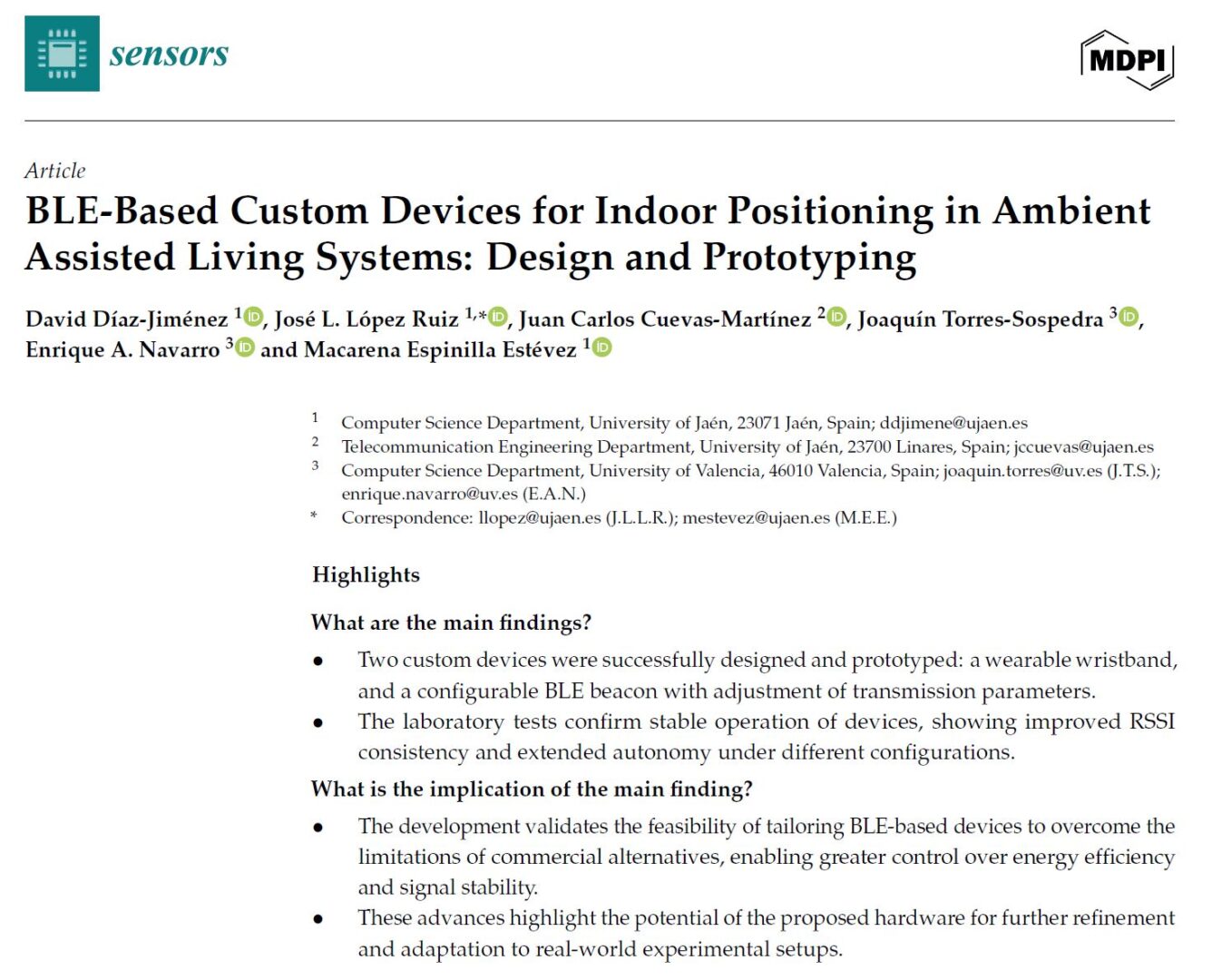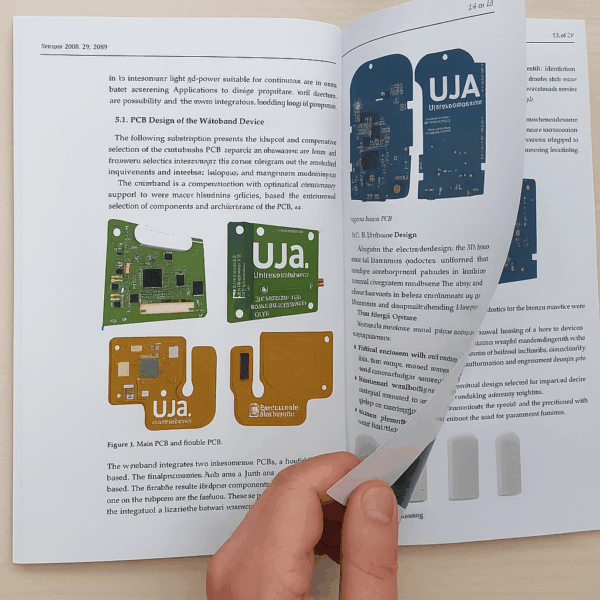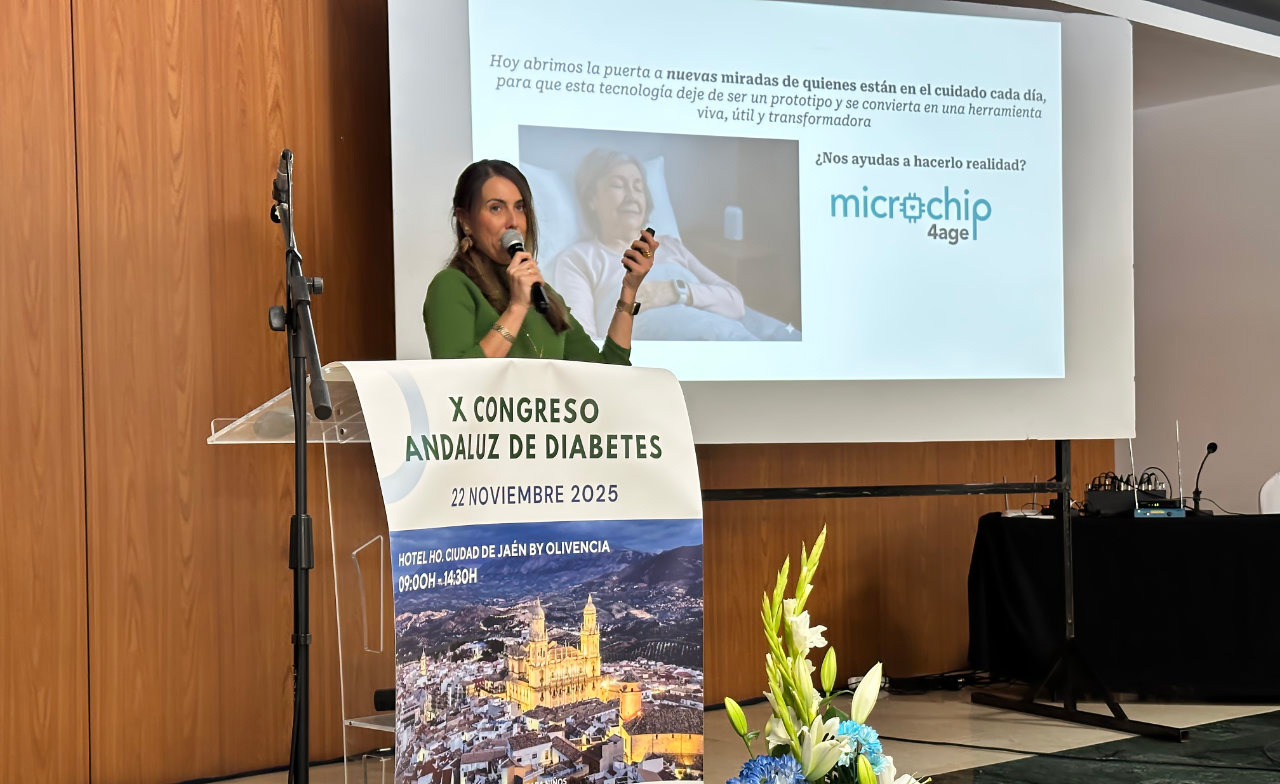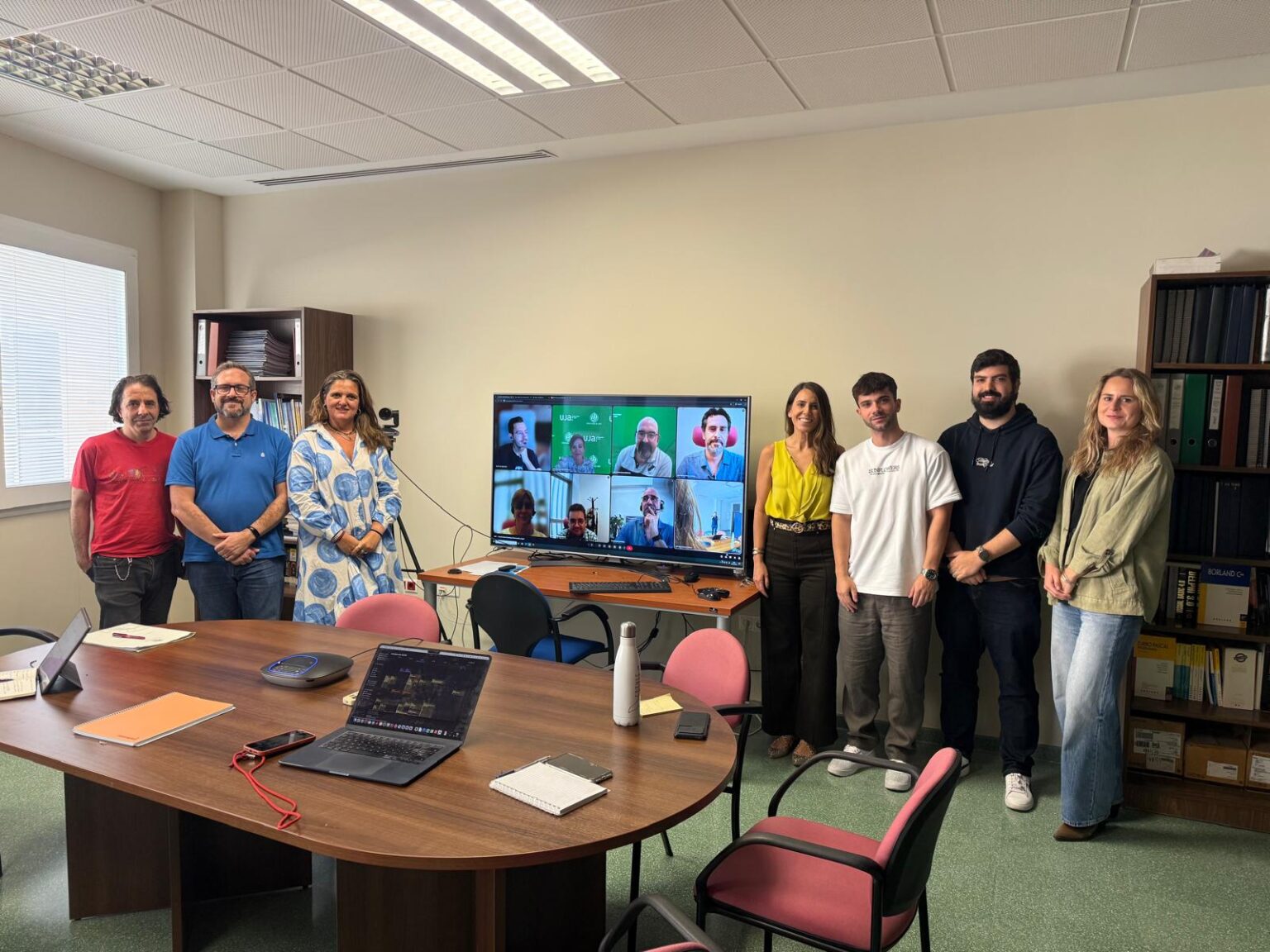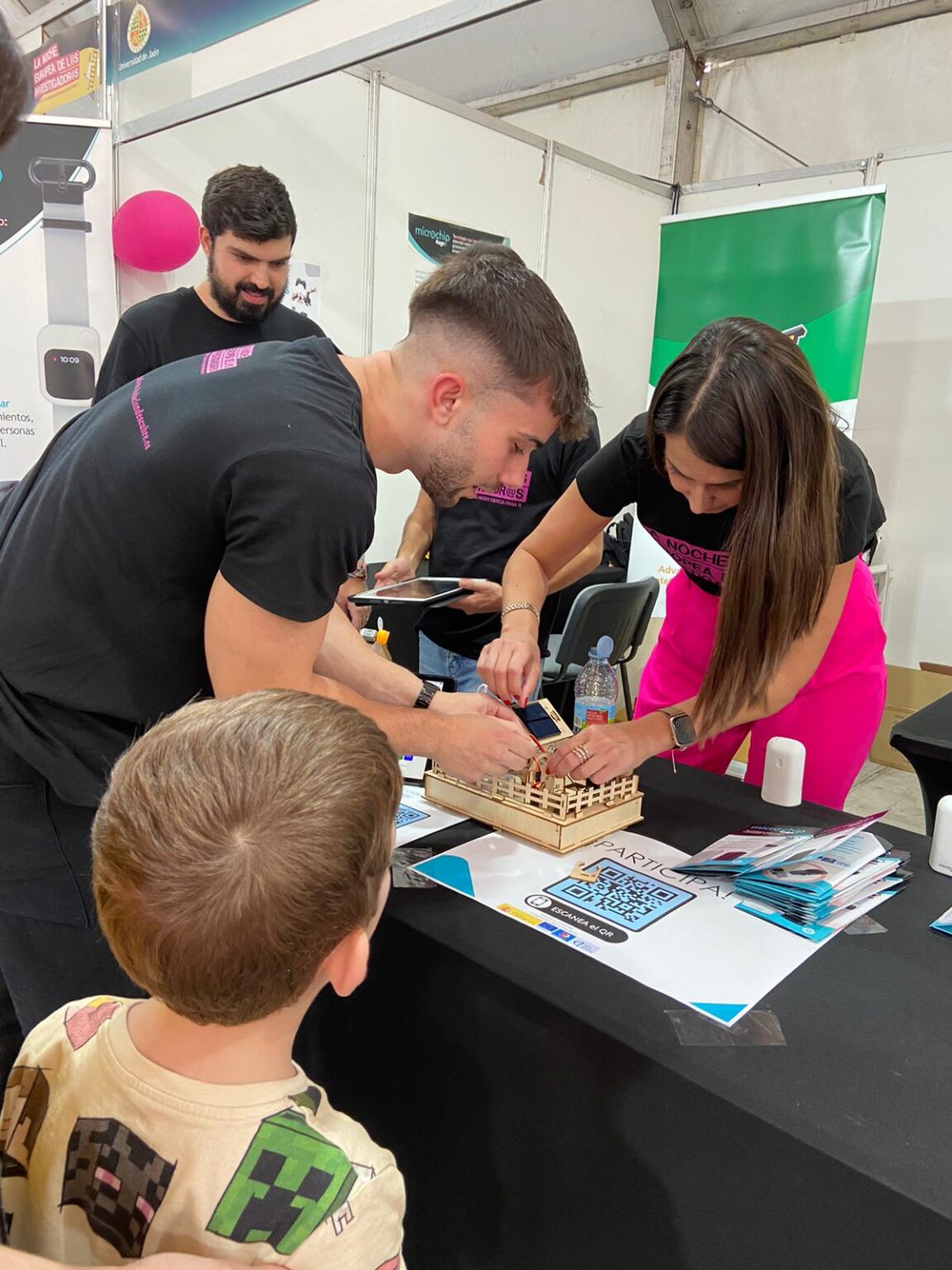The study presents the development of customized BLE devices for indoor localization and monitoring in healthcare and assisted living settings, validating their performance and autonomy.
Jaén, October 2025. – The MicroChip4Age project, coordinated by the ASIA Research Group (Advances in Intelligent Systems and Applications) at the University of Jaén, has published in the international journal Sensors the results of its research on the design and prototyping of low-power smart beacons (BLE) for indoor positioning and assistive systems.
The article, entitled “BLE-Based Custom Devices for Indoor Positioning in Ambient Assisted Living Systems: Design and Prototyping”, describes the development of two reconfigurable devices: a smart wristband integrating inertial and biometric sensors, and a configurable BLE beacon (ASIA Beacon) capable of dynamically adjusting its transmission parameters. Both hardware components were designed to overcome the limitations of commercial devices in key aspects such as energy efficiency, signal stability, and data transparency.
Innovation in design and experimental validation
The devices were designed using low-power components and 3D-printed enclosures, incorporating an over-the-air (OTA) update system and firmware based on Zephyr RTOS, which allows direct integration into IoT architectures and research environments. Initial tests, carried out in the anechoic chamber of the Radiofrequency and Antennas Laboratory at the University of Valencia, confirmed greater RSSI signal stability, autonomy of up to four months for the beacons and three weeks for the wristband, and reliable real-time data exchange in controlled conditions.
A step forward toward ethical and efficient localization
The study demonstrates the feasibility of customizing BLE devices to optimize their performance in assisted environments, offering precise control of transmission power, channel selection, and advertising frequency. This approach overcomes the limitations of commercial beacons, providing greater autonomy, stability, and adaptability to the needs of residential or clinical contexts.
According to the authors, “these results reinforce the potential of microelectronics and artificial intelligence as key pillars for the next generation of monitoring systems that promote health, safety, and independence among older adults.”
International impact and projection
The publication strengthens the ASIA Research Group’s leadership in developing technologies applied to care and assisted living. The study was conducted by David Díaz-Jiménez, José L. López Ruiz, Juan Carlos Cuevas-Martínez, Joaquín Torres-Sospedra, Enrique A. Navarro, and Macarena Espinilla Estévez, with the support of projects funded by the Spanish Ministry of Science, Innovation and Universities (PID2021-127275OB-I00 and PDC2023-145863-I00).
With this new result, MicroChip4Age continues to advance toward ethical, safe, and people-centered technology, contributing to the model of responsible innovation promoted by the University of Jaén.
